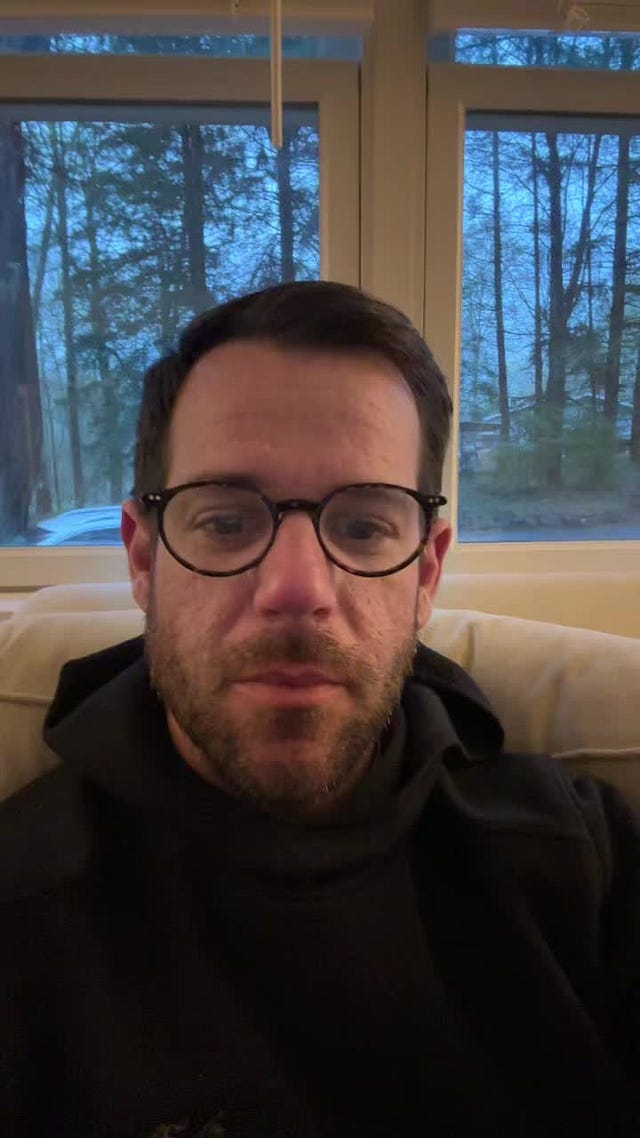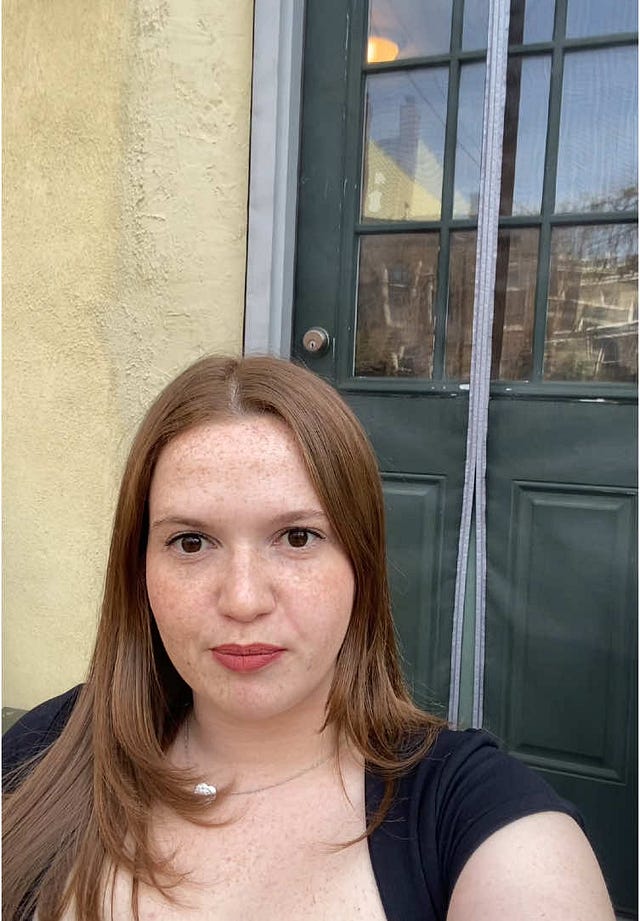Cardinal Karaoke, Evolving Tradition, And Mourning a Pervasive Pope
So, here’s the breakdown–we need to talk about Pope Francis’ funeral and the impending conclave.
Like what you read? Liking posts on Substack, sharing, and subscribing are all much appreciated ways to support the work of Words From My Wits’ End. Talk soon<3
Regardless of religion, it was impossible to miss the recent death of Pope Francis. The 2024 Oscar-nominated film Conclave introduced the folkloric traditions of catholicism to the masses for the first time in recent memory, and the pope’s passing and impending procession of events continues to captivate the eyes of the world.
As I reported for PEOPLE, Pope Francis passed away just one day after meeting with Vice President J.D. Vance. The fated meeting feels almost symbolic, because the pope tried for weeks, months even, to evade a conversation with Vance, who is a Catholic convert as of six years ago (and evidently, does not have nearly enough Catholic guilt).

 Tiktok failed to load.
Tiktok failed to load.Enable 3rd party cookies or use another browser
The pope previously criticized the Trump administration’s treatment of immigrants, and even made strides for the LGBTQ+ community in the recent years of his papacy. Catholicism is the oldest branch of Christianity, and yet for many, its traditions and lore are the subject of mystery and medieval pomp and circumstance.
In the mourning period for the pope, Catholics, lapsed and practicing alike, are sparking conversation online on what it really means to be raised Catholic. Yes, the people raised Catholic remember our first confession as young adolescents (during which many of us recount confessing innocuous sins like sneaking an extra piece of candy or staying up way past our bedtime, not finishing our homework or saying a curse word), but we are also cognizant of what sets us apart culturally from the largely conservative group of recent converts. Most modern Catholics do not attempt to use their personal beliefs to shape the politics that affect the lives of others, as we have seen several major Evangelical mega churches and politicians attempt in recent years.

 Tiktok failed to load.
Tiktok failed to load.Enable 3rd party cookies or use another browser
The uniting factor has always been the togetherness of the church, both through tradition and charitable works, much of which the nuns are responsible for. While Catholicism may be the oldest Christian religious branch, it has certainly churned out a large portion of progressive adults. 78% of U.S. Catholics surveyed by Pew Research Center viewed Pope Francis in a favorable light, largely due to his liberal worldview.
 Tiktok failed to load.
Tiktok failed to load.Enable 3rd party cookies or use another browser
Francis was unlike any other pope, let alone in recent memory. Outside of his papal duties, he loved music (and therefore certainly wouldn’t mind the famous meme of him holding the eucharist that fans have long photoshopped CDs from their favorite artists onto). I’ve written in the past about my own experience of growing up in a multicultural and interfaith family, but today, dear readers, has me thinking about how the Catholic Church, in spite of its flaws, has its moments of joining tradition with progress.
I (yes, a Goldberg), assistant taught CCD at my local parish in New Jersey as a teenage honors student who needed volunteer hours, and while I was technically the teacher, I learned a thing or two myself (and especially from Sister Phyllis, a no-nonsense nun whose bark was worse than her bite). Outside of my time in the church, my credentials also include a summer job at a Tennessee Buca di Beppo, during which I would often prepare the infamous pope room for events (if you know you know).
 Tiktok failed to load.
Tiktok failed to load.Enable 3rd party cookies or use another browser
Pope Francis was a member of the Jesuit order, an order of priests and clergymen who dedicate their lives to the education of others and the uplifting of the less fortunate. The order was founded in approximately 1540 by Saint Ignatius of Loyola. The pope kept a simple home in a dorm-style room in Casa Santa Marta instead of the extravagant papal apartments, and as viewers saw this past weekend, he maintained a very close friendship with a nun named Sister Genevieve Jeanningros. The Vatican was willing to break protocol and allow for Sister Jeanningros to stand in an area traditionally reserved for male members of the clergy, in line with the late pope’s groundbreaking ability to foster a diverse community while maintaining a humble lifestyle.
Unlike some branches of protestantism, women currently do not hold roles in the upper clergy of the Catholic church. This, however, does not discourage their education or friendships with clergymen. While nuns, like priests, take an oath of celibacy and live in quarters with one another, they have access to all levels of higher education and can interact with members of the clergy.
A pope’s death typically marks a new era in global politics and culture, and Pope Francis was certain to go out the way he lived–in a way that allows for people to come together. The late pope is breaking centuries of tradition by opting to be buried at St. Mary Major, a smaller basilica, instead of the Vatican. The pope entered his papacy in a more liberal landscape, and now during a second Trump administration in America, global conservatism is on the rise upon his death. But hope is not to be lost yet.
The Catholic Church continues to grapple with a difficult history outside of its many positive attributes. The church was responsible for Indian Boarding Schools across Canada and North America, which notoriously stripped indigenous children of their culture and beliefs and subjected them to abuse or even death.
Pope Francis was the first pope to acknowledge and apologize directly to the communities impacted by these schools. In a 2022 visit to Canada, the pope said, “I humbly beg forgiveness for the evil committed by so many Christians against the Indigenous peoples.” Prior to his visit to Canada, the pope additionally answered for the harsh treatment of indigenous people during the colonization of South America. The New York Times once reported on his 2015 address in Bolivia, during which he said, “I say this to you with regret: Many grave sins were committed against the native people of America in the name of God.”
The church also notoriously has endured countless abuse scandals within their own ranks, both in the Vatican and globally. The late pope was also the first pope to begin the long and arduous process of inputting measures to catch predators and remove them.
As the conclave process (the papal election) will begin in just a short few days, it's important to note the progressive candidates that would likely follow in the late Pope Francis’ footsteps. Already a frontrunner in the court of public opinion is Cardinal Tagle of the Philippines. Though not a Jesuit himself, Cardinal Tagle was a longtime friend of the late pope’s and appears to share his forward-thinking visions for the church. And the cherry on top? He sings karaoke in his free time. Who doesn’t love some Cardinal karaoke?
Given the state of the world, this year’s conclave may look a lot like the film Conclave. It will be the first conclave to take place in a digital forward world that turns to social media for news and cultural conversation. Is Cardinal Farrell about to be a gossip-girl-esque figure like Cardinal Lawrence? Time will only tell (if it goes to confession). The conclave is set to begin on May 7.











As someone raised Protestant who went to Catholic high school, it’s crazy how younger Gen Z Catholics are super evangelical these days like Catholic converts. I’m also sort of missing Pope Francis and hope the next pope will honor his blessings of same-sex couples and letting divorced people eat communion😩
He will be missed greatly:(